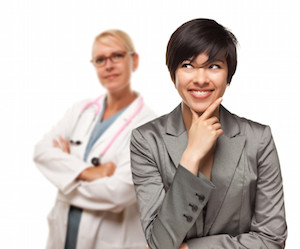We are experiencing a very high volume of calls and messages and ask for your patience. We will answer your portal messages within 48 hours.
We are experiencing a very high volume of calls and messages and ask for your patience. We will answer your portal messages within 48 hours.

 Egg donors are often amazing people who truly want to provide others with a gift. Some have children and can’t imagine a life without the joys of motherhood.
Egg donors are often amazing people who truly want to provide others with a gift. Some have children and can’t imagine a life without the joys of motherhood.
They want to help others find the happiness they have found as parents. Others are not yet ready to parent, but wish to provide others with this opportunity as they forge their life paths.
Due to a rigorous screening process, however, not everyone who applies is able to donate. At InVia, less than 5 percent of applicants in any given year are accepted to participate as egg donors. It’s important to carefully select wonderful young women who take their role in helping create families very seriously to make sure there is the best chance of compatibility with the parents-to-be.
In order to be considered as a donor, a woman must be healthy, between the ages of 21 and 30. The egg donor process requires the candidate to undergo extensive screenings that involve a reproductive hormone evaluation, a psychological evaluation, an assessment of their genetic history going back three generations as well as genetic testing.
During a donor’s initial visit, they will meet with a board-certified reproductive endocrinologist. Donors undergo a complete transvaginal ultrasound which includes a measurement of ovarian volume and assessment of antral follicle count, which is an important determinant of fertility.
The hormone evaluation includes the typical menstrual cycle day 3 hormones. These include follicle stimulating hormone, luteinizing hormone and estradiol, as well as the Anti-Mullerian Hormone. A fertility specialist interprets all ultrasound and blood findings to determine if the donor is medically qualified to donate eggs.
A psychological evaluation is done with a professional who has extensive experience working with egg donors. This one-on-one meeting will explore the donor’s motivations and assess their personality. A profile is developed according to the Minnesota Multiphasic Personality Inventory to check for any mental health or other clinical issues. Over the course of this evaluation, a detailed summary of the donor’s background, psychological fitness, demeanor and personality traits is developed.
There are two types of genetic evaluations donors go through. A genetic assessment looks at the family history of the donor going back three generations to find the risk of inherited diseases. This assessment is performed by a genetic counselor who has extensive experience in evaluating egg donors. The counselor will develop a formal report discussing the donor’s genetic history and an interpretation of the test results.
The second genetic evaluation is a test of the donor’s DNA directly to screen for all diseases as recommended by both the American College of Obstetricians and Gynecologists (ACOG) and The American College of Medical Genetics (ACMG). Additional genetic testing is performed to screen the donor for a large number of other inherited conditions.
Egg donors should also be prepared to provide photos of themselves as both a child and an adult. These photos are made available to patients of the fertility center for viewing when they are going through the process of choosing a donor, along with the donor’s reproductive history and outcomes of their previous cycles, however, recipients will not be provided the donor’s name, address or any other information considered “identifying.”
If you're interested in donating eggs through InVia’s egg donation program, you can visit our donor program homepage to view a full list of requirements-- or click the button below to apply to be a donor.

Entire Website © 2003 - 2020
Karande and Associates d/b/a InVia
Fertility Specialists
